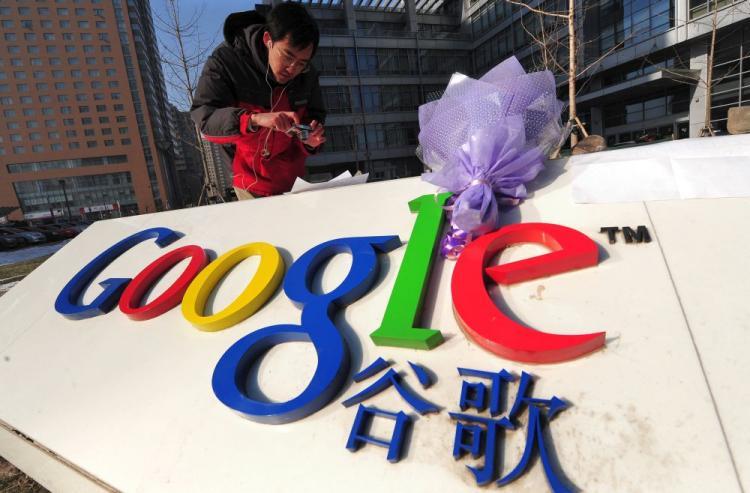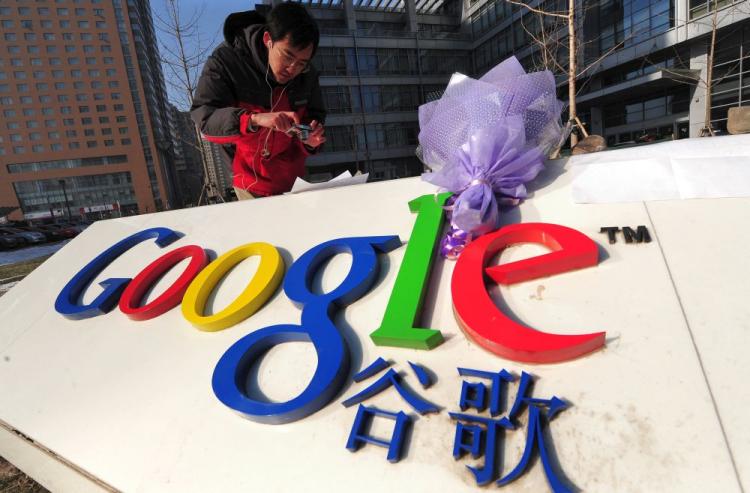Foreign Companies Concerned Over Intellectual Property Theft in China
The recent Internet attack on Google has alarmed Western enterprises in China.

A bouquet of flowers lay upon the company logo as a man photographs a commentary placed beneath a rock outside the Google China headquarters in Beijing on January 14, 2010. Frederic J. Brown/AFP/Getty Images
|Updated:






